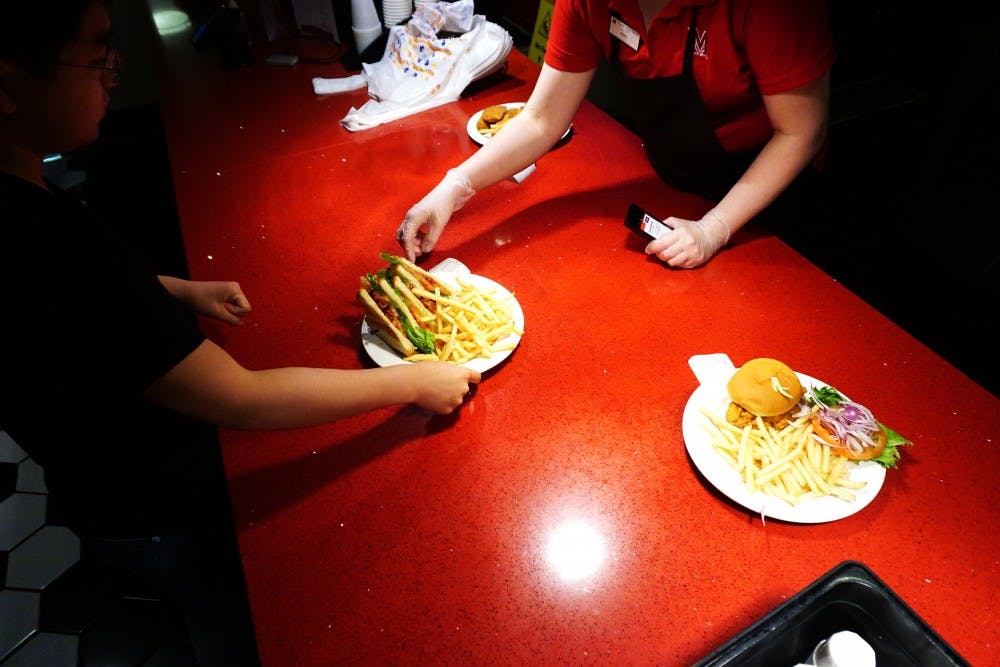The fifth and sixth weeks of the semester usually mean projects, presentations and midterm exams -- plus a large box of Goldfish, Starbucks Frappuccinos and two pints of Ben & Jerry's.
Although it's not a diagnosed form of disordered eating, stress eating is a common problem across many demographics, especially college students, said Gretchen Matuszak, director of Miami's Didactic Program in Dietetics and instructor in the department of kinesiology and health.
Matuszak attributed the unhealthy habit to the increased number of stressors that college students face.
"With stress, you're talking about about exams, midterms, having to meet with friends. Those stressors can bring on abnormal eating patterns," she said.
In addition to heavy loads of schoolwork and personal stress, Matuszak noted that the millennial generation's constant connection to social networks augments the already high level of anxiety that pushes students toward unhealthy foods.
"It seems like these devices," she said, in reference to computers and smartphones, "you're constantly aware of, and you constantly have to answer, so it stresses people out."
"The older population is all electronic users," she continued, "versus you all are electronic natives. You live in electronics. Yes, I think you have more stress, and I think you exhibit it in different ways. It comes out in food. It comes out in mental health concerns."
One of the most visible and obvious effects of stress eating is weight gain.
Jessica, a senior, has always acknowledged food as a coping mechanism, but remembers it becoming a problem her sophomore year.
"Sophomore year is when it got really bad, and I gained a bunch of weight because I would just stress eat a lot," Jessica said. "For me, eating while I study kind of takes my mind off the fact that I am stressed out and gives me something to do with my hands as I'm reading through my notes or reading a textbook."
Developing unhealthy eating habits out of stress can cause more problems than just weight gain, said Matuszak.
"You can really get to the point of not being cognizant about what you're eating," she said. "You get in a pattern of mindless eating. And there are studies that show how when people were eating salty and sugary foods and they put them in an MRI, their minds light up as if they were on cocaine, so you can get addicted to the foods that people gravitate towards when they're stressed."
Enjoy what you're reading?
Signup for our newsletter
Students can take steps to help themselves avoid unhealthy lifestyles. National resources like eatright.org are dedicated to providing accurate and free information regarding healthy eating. Miami's own Student Academy of Nutrition and Dietetics (SAND) serves as a similar resource to Miami students.
Joanne has noticed improvements in her eating habits after finding new ways to cope with stress.
"My stress eating has gotten better as I've learned to cope with stress and get through emotions in different ways," she said. "For me, it usually involves texting or calling someone, or even just taking more frequent brain breaks when I study."
Cravings and stress eating do not have to be completely erased in order for someone to be healthy, said Matuszak. In fact, letting yourself lightly indulge is more beneficial than eliminating foods, only to end up overindulging later on.
So as midterms and projects come up, it's okay to buy Ben & Jerry's -- just have a few scoops.




